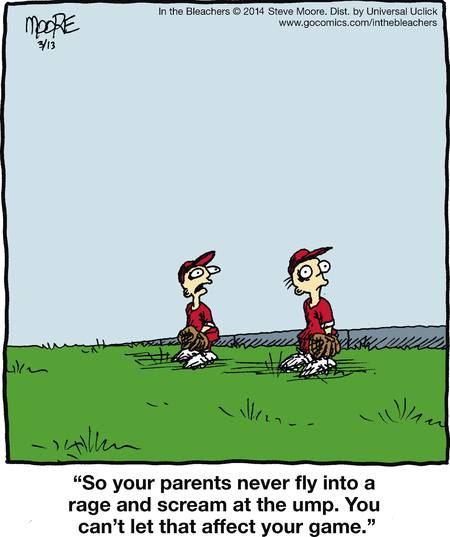Ian Goldberg is the Founder and CEO of iSport360, a SportsTech company that is helping 12,000 coaches, parents and kids set goals, share player feedback and track player development….all so our kids can have more success, more confidence and more fun. Try iSport360 for free here.
As a sports dad, youth sport coach and creator of an app for youth sports, I’ve heard many different perspectives on the role that parents should play in their kids’ youth sports experience. I’ve heard some hard nosed coaches say “No parent is going to tell me how to coach this team”. I’ve also heard some parents, even with kids at the college level saying “I deserve more communication from the coach”. And I’ll also be the first to acknowledge that my generation of parents has given way to the terms “helicopter parent” and “delusional sports parent”.
 However, I will say emphatically to coaches: “Parents will either be part of your process, or part of your problem.” So here are 6 ways to engage sports parents in a healthy, positive and productive way:
However, I will say emphatically to coaches: “Parents will either be part of your process, or part of your problem.” So here are 6 ways to engage sports parents in a healthy, positive and productive way:
1) Have a “Back to School Night” for your team: For the same reason teachers hold a “Back to School Night”, coaches should hold a short meeting for the team parents. It’s a great time for parents to understand a coaches views on winning, playing time, expectations and more.
2) Set goals for your players and communicate them to the parents: Every player and parent should know what standards you expect the kids to achieve. It’s not just technical and tactical skills, but it’s also physical abilities and life skills. By setting these expectations a the beginning of the season, it helps get parents and coaches saying the same things to their young athletes.
3) Talk about what is “cheer-worthy”: Parents love supporting their kids from the sideline, but every bit of recent research shows that sideline parents walk a fine line between “supporting” their kids and “distracting” their kids. So let parents know what you think is cheer-worthy. A soccer player dribbling the ball down the sideline is not cheer-worthy, even if it’s your kid. However, a soccer player beating an opposing defender, or making a beautiful through pass for a goal is DEFINITELY cheer-worthy.
4) Share post-game feedback: Nothing helps kids improve more than post-game feedback. And nothing helps parents understand how their kids are doing better than post-game feedback. So I always encourage coaches to share little bits of post-game feedback. Start a conversation. Let parents know why their player got pulled from the game or why they were moved to a different position. Truth is, when parents are investing so much time and money in their kids’ sports, they and their kids deserve some feedback.
5) Share fair and objective player evaluations: Could you imagine if schools stopped sending home report cards??? Parents would revolt and teachers would be caught in an uproar. So why do we accept a youth sports experience where there are rarely formal player evals. Research tells us, it’s just as important for the coach to share an evaluation periodicially as it is for kids to complete their own self-eval. But objectivity is key. Subjective and informal evals have been the norm for too long. By using fair and objective evals, coaches, players and parents can engage in productive conversations throughout the season and at tryout time.
6) Encourage parents to share praise with all the kids on the team: Certainly every parent wants their kid to succeed…but every kid on the team thrives on praise. So I always encourage parents to cheer for and praise all of the kids on the team….not just their kid, not just the best player, but everyone. In fact, at iSport360 we hold parent praise in such high regard that we created a feature where team parents can share stickers, emojis and messages with any kid on the team….and kids can watch their sticker count grow. Lots of engagement and lots of fun.
With a hint of sarcasm I will leave you with this last point if none of these 6 methods work for you: Offer your team parents the “Zip the Lip Challenge”. Simply dare your team parents to go half of a game WITHOUT SAYING ONE WORD. Ironically, you are not asking them to dis-engage, only asking them to keep the sidelines quiet during a game. It’s one heck of a challenge and it allows young players focus on the coaches instructions as well as their own decision making. So give it a try and let me know how it goes.
Coaches and sport parents can start sharing objective player feedback at www.isport360.com or download our iSport360 here:

